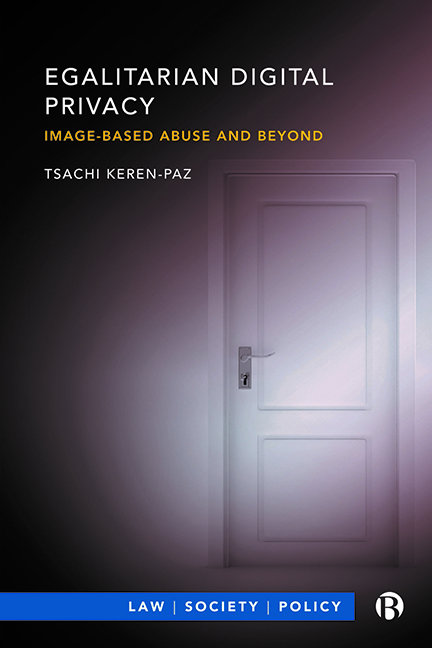Book contents
- Frontmatter
- Dedication
- Contents
- Acknowledgements
- Series Editor’s Preface
- 1 Introduction
- 2 Setting the Ground: The Intermediary Liability Debate and Framing Issues
- 3 First Principles and Occupiers’ Liability: The Case against Immunity
- 4 Property and Privacy: The Case for Strict Liability
- 5 Property and Privacy: Objections and Possible Extensions
- 6 The Policy Debate: Uniqueness of Harm from NCII
- 7 The Policy Debate: Freedom of Expression and Financial Costs of Filtering
- 8 The Easy Case for Viewers’ Liability: Child Pornography and Apportionment of Liability
- 9 Viewers’ Liability: Intention and Objective Fault
- 10 The Power of Property: Strict Liability for Viewing NCII
- 11 Scope of Liability for Breaches of Privacy
- 12 Is Suing Viewers Practicable?
- 13 Conclusion
- References
- Index
11 - Scope of Liability for Breaches of Privacy
Published online by Cambridge University Press: 17 January 2024
- Frontmatter
- Dedication
- Contents
- Acknowledgements
- Series Editor’s Preface
- 1 Introduction
- 2 Setting the Ground: The Intermediary Liability Debate and Framing Issues
- 3 First Principles and Occupiers’ Liability: The Case against Immunity
- 4 Property and Privacy: The Case for Strict Liability
- 5 Property and Privacy: Objections and Possible Extensions
- 6 The Policy Debate: Uniqueness of Harm from NCII
- 7 The Policy Debate: Freedom of Expression and Financial Costs of Filtering
- 8 The Easy Case for Viewers’ Liability: Child Pornography and Apportionment of Liability
- 9 Viewers’ Liability: Intention and Objective Fault
- 10 The Power of Property: Strict Liability for Viewing NCII
- 11 Scope of Liability for Breaches of Privacy
- 12 Is Suing Viewers Practicable?
- 13 Conclusion
- References
- Index
Summary
Introduction
This chapter completes the analysis of viewers’ liability by discussing the scope of liability in misuse of private information (Privacy) both as currently understood by courts and scholars, and as it ought to be. While the discussion focuses on viewers’ liability, it is broader than that. It makes references to uploaders and intermediaries and broader still, aspires to make an intervention in current debates about privacy as a tort and the relationship between privacy and reputation, thus contributing to broader debates in tort theory. The direct protection of privacy by a stand-alone tort, as distinct from being protected by the equitable wrong of breach of confidence, is a relatively recent phenomenon in commonwealth jurisdictions. As such, the authority about some fundamental questions is surprisingly scant, and lots of academic discussion reaches its conclusions based on reference to first principles. To my mind, there are three foundational questions about the scope of liability for breach of privacy, relevant to determining whether the typical harms suffered by NCII are capable of being compensated by a Privacy claim (or a comparative equivalent): The first, whether Privacy ought to compensate for the mere diminishing of control, for distress (and other consequential losses) or for both. This has bearing on debates in tort law and the law of remedies on the extent to which injury to autonomy ought to be an actionable damage in its own right (Part 2). The second, whether Privacy, or rather only defamation, ought to compensate for reputation loss. This relates to broader debates about the division of labour between different areas of law and claimant’s election; coherence, the relevance of dated authorities and law’s expressive potential (Part 3). The third, whether some types of consequential losses such as loss of employment, loss of dependency due to a break of marriage and losses from follow-up physical attacks or from suicide are too remote (Part 4). A fourth question, which is unique to viewers’ liability, concerns apportionment of liability for overdetermined harm to which many viewers contributed (Part 5).
- Type
- Chapter
- Information
- Egalitarian Digital PrivacyImage-based Abuse and Beyond, pp. 194 - 213Publisher: Bristol University PressPrint publication year: 2023



